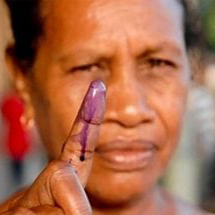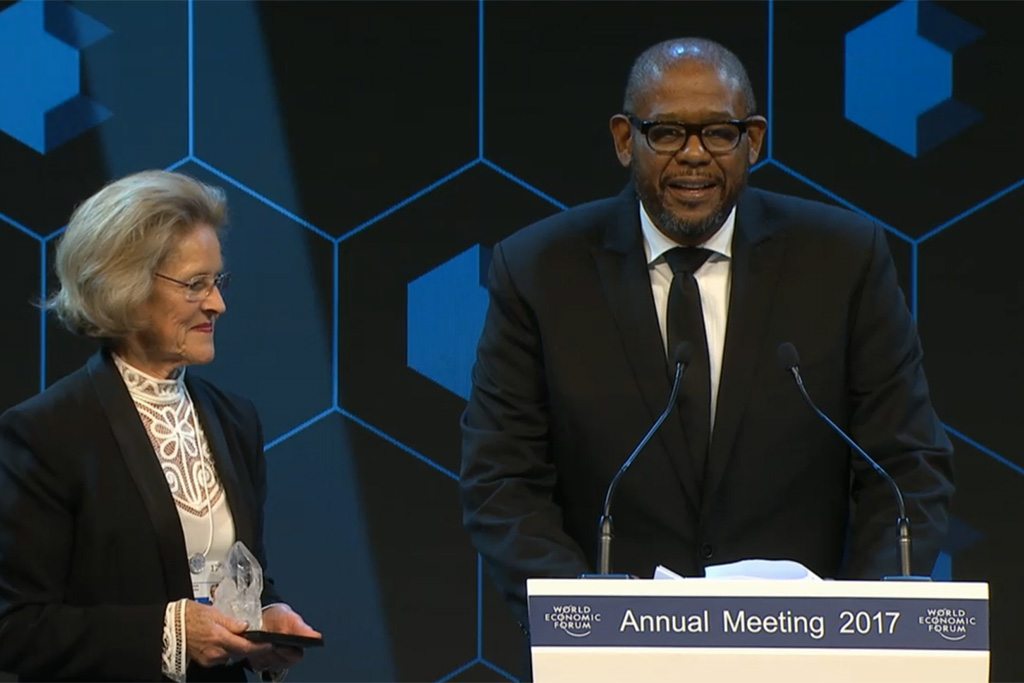Goal 16 is about promoting peaceful and inclusive societies, providing access to justice for all and building effective, accountable and inclusive institutions at all levels. People everywhere should be free of fear from all forms of violence and feel safe as they go about their lives whatever their ethnicity, faith or sexual orientation.
However, ongoing and new violent conflicts around the world are derailing the global path to peace and achievement of Goal 16. Alarmingly, the year 2022 witnessed a more than 50 per cent increase in conflict-related civilian deaths – the first since the adoption of Agenda 2030 – largely due to the war in Ukraine. In 2024, loss of lives amid armed conflicts surged 40 per cent from 2023, marking the third consecutive annual rise. About four times more children and women were killed in 2023–2024 than in the previous biennium; of these, 8 in 10 child deaths and 7 in 10 female deaths occurred in Gaza.
High levels of armed violence and insecurity have a destructive impact on a country’s development, while sexual violence, crime, exploitation and torture are prevalent where there is conflict or no rule of law, and countries must take measures to protect those who are most at risk.
Governments, civil society and communities need to work together to find lasting solutions to conflict and insecurity. Strengthening the rule of law and promoting human rights is key to this process, as is reducing the flow of illicit arms, combating corruption, and ensuring inclusive participation at all times.
Why should I care?
High levels of armed violence and insecurity have a destructive impact on a country’s development. Sexual violence, crime, exploitation and torture are prevalent where there is conflict or no rule of law.
Governments, civil society and communities need to work together to find lasting solutions to conflict and insecurity. Strengthening the rule of law and promoting human rights is key to this process, as is reducing the flow of illicit arms, combating corruption, and ensuring inclusive participation at all times.
How does this apply to where I live?
Goal 16 aligns with the broader human rights framework by promoting societies that respect and uphold individual rights, as well as the right to privacy, freedom of expression, and access to information.
Peace is a fundamental precondition for social and economic development. Without peace, societies are often plagued by conflict, violence, and instability, which can hinder progress and result in the loss of lives and resources.
Equal access to justice is essential for protecting the rights of individuals, resolving disputes, and ensuring that vulnerable populations are not marginalized or mistreated.
Crimes threatening peaceful societies, including homicides, trafficking and other organized crimes, as well as discriminatory laws or practices, affect all countries.
What if we don’t take action?
Armed violence and insecurity have a destructive impact on a country’s development, affecting economic growth and often resulting in long-standing grievances among communities.
Violence also affects children’s health, development and well-being, and their ability to thrive. It causes trauma and weakens social inclusion.
Lack of access to justice means that conflicts remain unresolved and people cannot obtain protection and redress. Institutions that do not function according to legitimate laws are prone to arbitrariness and abuse of power, and less capable of delivering public service to everyone.
To exclude and to discriminate not only violates human rights, but also causes resentment and animosity, and could give rise to violence.
What can we do?
Exercise your rights to hold your elected officials to account, to freedom of information and share your opinion with your elected representatives. Promote inclusion and respect towards people of different ethnic origins, religions, gender, sexual orientations or different opinions.

- In 2024, loss of lives amid armed conflicts surged 40 per cent from 2023, marking the third consecutive annual rise.
- About four times more children and women were killed in 2023–2024 than in the previous biennium; of these, 8 in 10 child deaths and 7 in 10 female deaths occurred in Gaza.
- Rising conflicts and violent organized crime persist around the world, causing immense human suffering and hampering sustainable development. The number of forcibly displaced people reached an unprecedented 123.2 million by the end of 2024. Civilian casualties in armed conflicts surged 40 per cent in 2024.
- In 2021, the world experienced the highest number of intentional homicides in the past two decades. The global homicide rate declined by 5 per cent between 2015 and 2022 from 5.9 per 100,000 people in 2015 to 5.2 in 2023.
- Globally, detected human trafficking victims increased by 25 per cent in 2022 compared to pre-pandemic levels and by 43 per cent compared to 2020. A key driver of this surge is the growing number of child victims, which has risen by 31 per cent since 2019.
- Killings and disappearances of human rights defenders, journalists and trade unionists remained alarmingly high in 2024, with at least 502 killings documented across 44 countries and 123 disappearances documented across 37 countries. While these represent slight declines from 2023, persistent human rights abuses continue to undermine progress towards peace, justice and accountability.
- Structural injustices, inequalities and emerging human rights challenges are putting peaceful and inclusive societies further out of reach. To meet Goal 16 by 2030, action is needed to restore trust and to strengthen the capacity of institutions to secure justice for all and facilitate peaceful transitions to sustainable development.
16.1 Significantly reduce all forms of violence and related death rates everywhere
16.2 End abuse, exploitation, trafficking and all forms of violence against and torture of children
16.3 Promote the rule of law at the national and international levels and ensure equal access to justice for all
16.4 By 2030, significantly reduce illicit financial and arms flows, strengthen the recovery and return of stolen assets and combat all forms of organized crime
16.5 Substantially reduce corruption and bribery in all their forms
16.6 Develop effective, accountable and transparent institutions at all levels
16.7 Ensure responsive, inclusive, participatory and representative decision-making at all levels
16.8 Broaden and strengthen the participation of developing countries in the institutions of global governance
16.9 By 2030, provide legal identity for all, including birth registration
16.10 Ensure public access to information and protect fundamental freedoms, in accordance with national legislation and international agreements
16.A Strengthen relevant national institutions, including through international cooperation, for building capacity at all levels, in particular in developing countries, to prevent violence and combat terrorism and crime
16.B Promote and enforce non-discriminatory laws and policies for sustainable development
Related news
Guterres highlights importance of recognizing the links between peace and sustainable development
“We need a global response that addresses the root causes of conflict, and integrates peace, sustainable development and human rights in a holistic way – from conception to execution,” Mr. Guterres told a UN General Assembly high-level dialogue.
Secretary-General’s remarks at the World Economic Forum
THE SECRETARY-GENERAL'S REMARKS AT THE SPECIAL SESSION ON “COOPERATION FOR PEACE: TACKLING THE ROOT CAUSES OF GLOBAL CRISES” Davos, Switzerland, 19 January 2016 Thank you very much, Professor Schwab. It is good to be back [...]
UN envoy Forest Whitaker honoured for work in peacebuilding
To achieve the SDGs by the 2030 deadline, Mr. Whitaker stressed the importance of “common people” being empowered to act.





